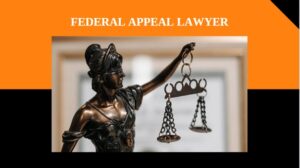Can You Get a Loan After Bankruptcy?

After you file for bankruptcy, getting a loan or mortgage can be challenging. Bankruptcy remains on your credit report for years, and lenders may view you as a high risk because of the negative impact it has had on your credit score. In addition, you will likely be charged higher interest rates than someone who has never filed for bankruptcy. Be sure to work with an experienced bankruptcy attorney such as Cain & Herren and seek out qualified lenders to ensure you’re on the right track to financial success.
If you are looking for personal loans after bankruptcy, there are some lenders that specialize in working with debtors who have experienced bankruptcy. These companies typically have lower minimum credit score requirements and are able to approve loans for people who have recently gone through bankruptcy. You should also consider checking with local credit unions, community banks and online lenders, as they often have more flexible lending criteria than traditional banks.
You should be patient while you wait to qualify for a conventional mortgage after filing for bankruptcy. The process of qualifying for a mortgage takes time, and during that period you should focus on improving your credit score and saving money to put toward a down payment. It is also important to avoid taking on new debt while you are waiting for your credit to rebuild.
The type of loan you can get after a bankruptcy will depend on the chapter you choose and when it was discharged or dismissed. If you file for bankruptcy under Chapter 7, you will have to wait at least four years from the date of the court’s discharge or dismissal before you can apply for a mortgage. If you file for bankruptcy under Chapter 13, the waiting period is two years.
If you’re unsure of what your credit score is after a bankruptcy, you can check it for free with a site like Credit Karma. It will provide you with a free credit report and your credit score, which can help you determine where you stand before applying for a loan.
You can also try to improve your credit by paying down your existing debts and building up an emergency fund. This will help you prove to lenders that you are a responsible borrower and can manage a debt repayment plan. You can also look into credit-builder loans and secured credit cards, which are designed to help debtors build or rebuild their credit after experiencing financial hardship.
Filing for bankruptcy is a serious decision that will have long-lasting effects on your ability to borrow and credit history. However, if you are diligent and work to improve your credit standing after bankruptcy, you will eventually be able to qualify for a conventional mortgage and begin the journey of homeownership.
Cain & Herren, ALC
2141 W Vineyard St, Wailuku,
HI 96793, United States
+1 808-242-9350
law@cainandherren.com
https://cainandherren.com/
https://cain-herren-attorney.business.site/


